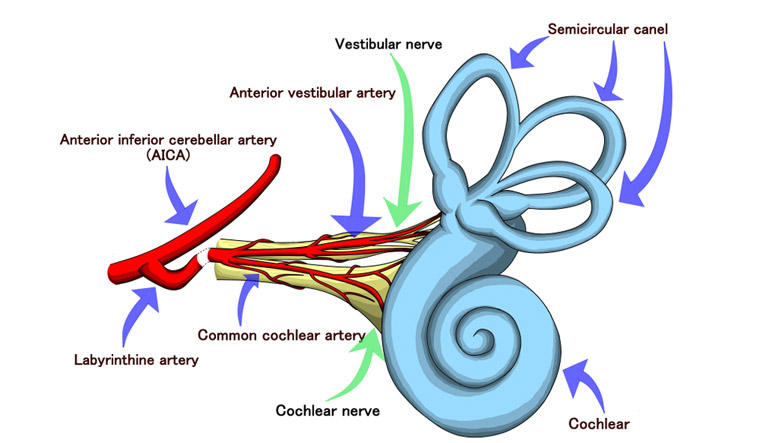Australian scientists have designed miniature video goggles that measure eye movements during vertigo which can help diagnose the type of vertigo a person suffers.
According to the researchers at University of Sydney and Royal Prince Alfred Hospital, patients using miniature video goggles were able to capture episodes of vertigo in their home and the scientists were then able to use the videos to identify associated with different conditions.
The goggles were developed by Hamish MacDougall from the university's Vestibular Research Laboratory in the Faculty of Science.
Miriam Welgampola, senior author of the study, said vertigo can be a symptom of a number of different conditions, including stroke in rare instances, so it is important that the cause is identified as soon as possible.
"Vertigo can be a disabling condition, so an accurate diagnosis is important to effectively treat the underlying disorder," Welgampola said.
"Observing a person's eye movements during an episode can help make the diagnosis, but people don't always have an episode when they are at the doctor's office," she said.
In this proof of concept study, the researchers taught patients who were already diagnosed with three common causes of vertigo to video record their own episode of vertigo.
Of the group, 43 people had Meniere's disease, an inner ear disorder that can affect hearing and balance, 67 had vestibular migraine that can cause vertigo but may not cause a headache, and seven had benign paroxysmal positional vertigo, one of the most common causes of vertigo, where a person's head movements trigger the episodes.
The diagnostic yield of the goggles was slightly different for each condition, however for Meniere's disease the googles were able to provide very high accuracy of diagnosis similar to in-clinic hearing tests which can generally only be completed when a patient's condition is more progressed.
"These results indicate that it is possible for patients to record their own episodes of vertigo and for health professionals to apply these principals when viewing the video footage to rapidly and accurately diagnose the cause of the vertigo," said Allison Young, lead author of the study, which was published in the journal Neurology.
"While further studies are needed in larger groups, providing people with a pair of goggles that they can easily use at home to recor



